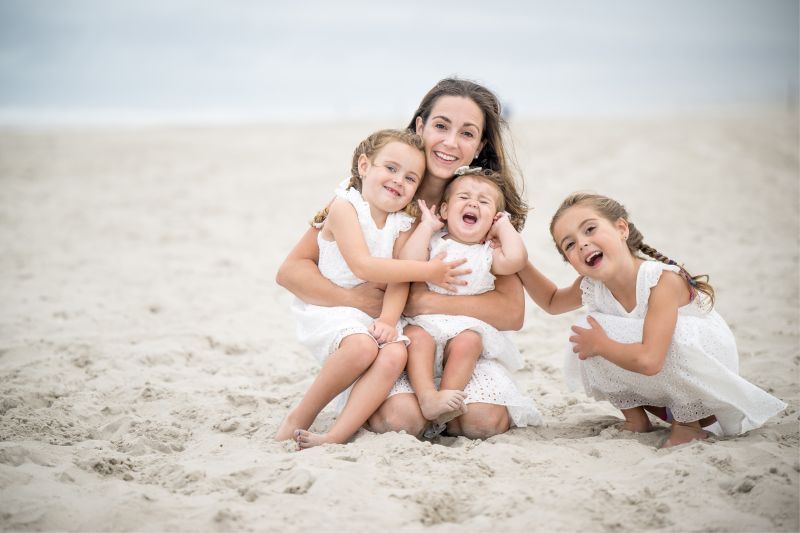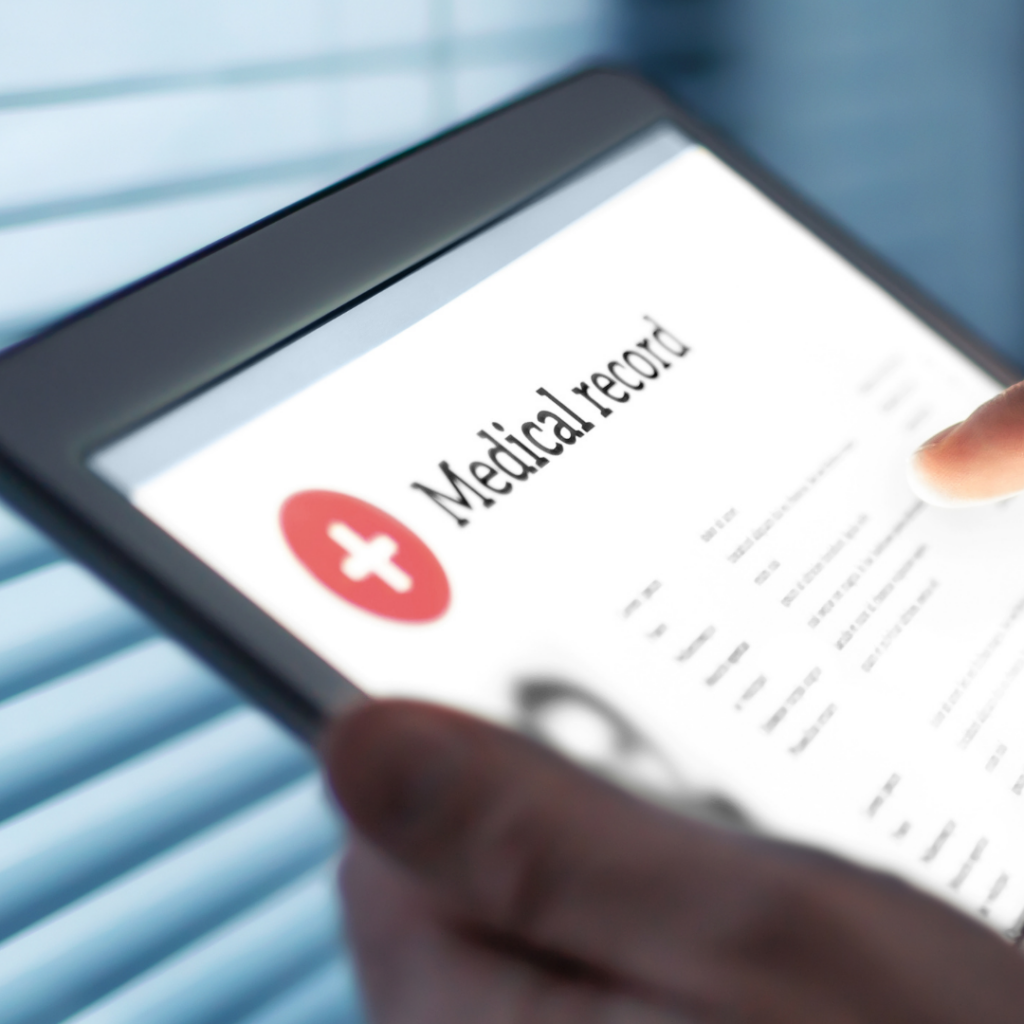When it comes to healthcare, personal health records (PHR) have been hailed as a way to take charge of your health, reduce the cost of care, and improve the quality of care received. However, my time as a volunteer, nurse, and mom in my community has made me realize how short-sighted PHR systems have been. Patients who really engage with healthcare do not do it alone. Care happens in the context of community and family. In this blog post, I will share three stories to build my case for why family & community networks must be harnessed to reach the health outcomes we want for patients in the future.
Volunteer: C.A.R.E.
After leaving the hospital world of critical care, I volunteered at The Center for At-Risk Elders (C.A.R.E.) as a guardian to some of my community’s most vulnerable adults. In my time with C.A.R.E., I oversaw three individuals’ nursing home care, therapy, medical appointments, and end-of-life care. I was supported by a fantastic team who handled housing, financial payments, insurance, and on-call assistance I needed in making decisions for another human being. My greatest joy was taking my guardians to their medical appointments.
Building Trust with Doctors
As I sat with my guardian waiting for the doctor, I learned to be ready for the hurried doctor, who instantly halted upon entering our room. Having lived in their shoes, you do not quite realize what goes on in nurses’ and doctors’ minds at guessing who is in the room with their patients. I also knew I had about 10 seconds to win over the doctor as someone they could trust because I, too, had an invested interest in their patient’s health.
To earn this trust, I learned to prepare a hand-off report, something years of nursing taught me. I would distill the health history, the nursing home’s concerns, my concerns, and the wishes my guardian had about their quality of life into notes on my phone. As questions came, I was ready to answer, and within five minutes, the room’s atmosphere changed from guarded to collaborative.
Defining Family
My time at C.A.R.E. taught me two things. First, the definition of family is flexible. From Family Voices, the best definition of family emerges:
A family can be as temporary as a few weeks, as permanent as forever. We become part of a family by birth, adoption, marriage, or desire for mutual support. As family members, we nurture, protect and influence each other. Families are dynamic and are cultures unto themselves, with different values and unique ways of realizing dreams. Each family has strengths and qualities that flow from individual members and the family as a unit. Our families create neighborhoods, communities, states, and nations.
Family Voices
Including Families Is An Extra Step
Second, the doctor-patient relationship is built into all healthcare workflows, but the doctor-family caregiver relationship is an extra step. My time as a volunteer ended because being a guardian at the level I wanted to be was a lot of time, emotions, and work! Preparing for medical appointments, staying abreast of changes at the nursing home, and making tough decisions with little information grew my appreciation and desire to change the experience of family caregivers in the community.
Nurse: Starting a Care Coordination Company
Around the same time volunteering at C.A.R.E, I started a care coordination company to focus on helping older adults and their family caregivers with transitions in healthcare. I dreamed of reducing emergency room visits, keeping older adults in their homes, and improving the health of 80+ year-olds. I will never forget the first family who believed in me, The Bruce Family:

I started with their aging parents, living in a small, independent living community. We ended our four-year journey together in a nursing home on hospice. Like many sons and daughters, the Bruce family’s adult children had a growing concern for the health and well-being of their aging parents, while their aging parents believed everything was fine! I was hired to coordinate the increasing complexity of specialists and homecare needs. I lived the experience every family member does when asked to jump in to help. I was stuck because where do you begin to piece together the health story of what is happening to figure out what is needed?
Uncovering & Organizing Health Information
I was outside the health information systems for the first time in my nursing career. I was frustrated knowing the emergency room nurse, a stranger to the family, who took care of Mr. Bruce for 6 hours, had better access to detailed medical and progress notes, labs, and imaging results than a son or daughter, who was taking them to medical appointments and coordinating homecare.
I spent six years learning to uncover health information for families to help them navigate the care and plan for their aging parents. When I onboarded a new client, I would spend 10 to 20 hours before I could have a 90% complete picture of their health story – medications, conditions, doctors, visits, vaccinations, health history, family history, and past surgical history. Then, the real work began by documenting the family’s goals of care, how they wanted their care personalized, legal and financial resources to achieve this plan, and the endless research for finding the right community resources.
Families Want to be Included
In 2020, I handed my care coordination business to another nurse because I saw a path to replicate what I was doing for families with technology. The changing laws around electronic patient access to health information and information blocking would make the 10 to 20 hours I used to spend turn into minutes to an hour for a family. I learned a lot from the Bruce Family, but the biggest lesson was families want engagement in the health and well-being of each other. And they often do not engage because of how intimidating and time-consuming healthcare has made accessing the information so that they can be involved.
Mom: Three Healthy Kids
Starting a second career as a critical care nurse, I never knew my path would lead to co-founding a technology startup. I was extremely lucky to live in a cul-de-sac with Jim McIntosh, who listened to my vision of what families need and co-founded Primary Record with me to bring it to life. While Jim and I hope every family will see the value of having a Primary Record, we also know many patient portals serve the needs of families today. I know because this is what I used until I changed my sons’ doctor.
Lessons Learned from Medical Moms
At Primary Record, Jim and I focused on talking to families who care for aging family members or are handed a rare, complex disease for a child. Early on, we learned that medically complex individuals are often surrounded by a network or care team in that families actively participate. This care team places a significant value on having the ability to coordinate care and information in one place for each other. This is because the care team interacts near-weekly between care at home, visiting doctors, getting labs or imaging, and working with therapists. Our focus at Primary Record was understanding why families began to compile a medical binder or system of organizing health information to bring with them and how they used it. Listening to their stories made me question how good of a job I was doing for my family as keeper of their health story.
This questioning led me to do a mapping exercise of all our family’s patient portals when I changed the doctor of my three sons. I learned the pediatrician’s office records were limited in what I could access as their mother and would come at the cost of up to $25 per kid to share with me! This experience made me realize how much more I needed to understand about the experience of medically complex families. I was afforded the choice not to pay because my kids were healthy, and there was no detriment to their care starting over with a new doctor. For other families, the cost would be a price they would pay to ensure continuity of care, or worse, not pay to take away their choice to change doctor. In case you are curious, my healthy family of five has thirteen different log-in accounts to build our health story.
Building a Family-Centered App
In conclusion, there are a number of reasons why personal health record (PHR) systems fail to be adopted. I believe the biggest one is their inability to account for the highest engagers of healthcare who lean on their community and family. As my stories show, the health system must be open to allowing a patient to define their family in a flexible way. As changing laws open access to patient health information, we must also challenge IT infrastructure to create workflows that opt-in family rather than make it an extra step for office staff, doctors, and nurses—the reason I experienced firsthand. Engaged families lead to a better healthcare experience for the patient and care team. Making care decisions is best when everyone starts with the same information and each perspective is valued. The cost some families pay in time, emotions, and money to receive the best care is our why at Primary Record!




